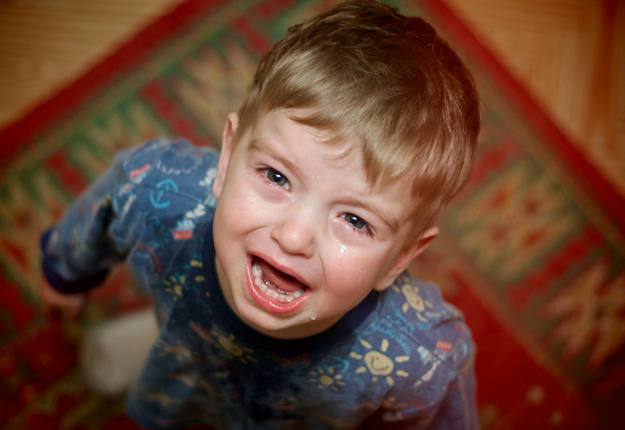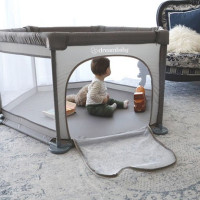Research warns melt downs could signal a darker side to a child’s personality.
Experts have identified clues that can suggest whether the ‘terrible twos’ is just a blip, or if they are actions that are likely to escalate to aggression, stealing and bullying, as reported by The Daily Mail.
They studied ‘callous-unemotional’ behaviours in the toddler years that include:
- lack of empathy,l
- lying and
- little emotion in children who would likely have the worst behaviour problems years later.
They said these children are likely to end up bullying others despite the consequences or how the victim feels.
More Than The Terrible Twos
Dr Luke Hyde, assistant professor at the University of Michigan, and lead author of the study, said: ‘These are signs for parents and doctors to watch out for, as they may signal more than just the terrible twos.’
In fact, when these behaviours are not corrected, children could get into trouble with the law later in life, he warned.
Most Criminals Start Antisocial Behaviour As Toddlers
While most children grow out of the ‘terrible twos’ to become well adjusted, research has shown that most career criminals started their antisocial behaviour during their toddler years.
Callous-unemotional behaviours are very distinct from other behaviour problems, said Professor Jenae Neiderhiser, at Penn State University.
She said: ‘If we can identify these kids early we may have a better chance of intervening in a child’s development.’
Beyond identifying these behaviours as early signs of trouble, the researchers’ work sheds light on the origins of the behaviours.
Harsh And Negative Parenting Can Be The Cause
Decades of research have shown that harsh and negative parenting is linked to the development of antisocial behaviour.
Dr Hyde said: ‘The challenge in this research has been knowing the true origins of these behaviours because parents both take care of their child and provide their child’s genes.
‘So, it’s been difficult to know if we’re seeing that parenting causes callous-unemotional behaviours, or is just a sign of the genes being passed to the child.’
Positive Re-Inforcement Can Alter Bad Behaviour
‘The really exciting take-home message from this study is that small, day-to-day positive interactions that parents have with their young children can make a huge difference in children’s development,’ said Leslie Leve, a professor at the University of Oregon who co-led the collection of the data for this study.
‘Even when a child has inherited a very challenging set of behaviours, hearing ‘good job’ or receiving a pat on the back can help protect that child from developing serious problems stemming from their inherited difficulties.’
The study, which is supported by the National Institutes of Health and Penn State’s Social Science Research Institute, is published in The American Journal of Psychiatry.
Share your comments below.
We may get commissions for purchases made using links in this post. Learn more.




















-

-
-
-
mom68673 said
- 24 Jul 2018
Reply
-

-
-
-
mom111059 said
- 30 Jun 2018
Reply
-

-
-
-
hologro said
- 10 Jun 2016
Reply
-

-
-
-
mom81879 said
- 25 Apr 2016
Reply
-

-
-
-
serotonin said
- 18 Apr 2016
Reply
-

-
-
-
june11 said
- 15 Apr 2016
Reply
-

-
-
-
meedee said
- 14 Apr 2016
Reply
-

-
-
-
Naomi said
- 13 Apr 2016
Reply
-

-
-
-
mom160421 said
- 13 Apr 2016
Reply
-

-
-
-
BellaB said
- 13 Apr 2016
Reply
-

-
-
-
mom90758 said
- 13 Apr 2016
Reply
Post a comment10:06 pm
8:18 pm
8:18 pm
12:53 pm
1:21 pm
8:10 pm
9:52 pm
8:43 pm
5:10 pm
4:52 pm
1:44 pm